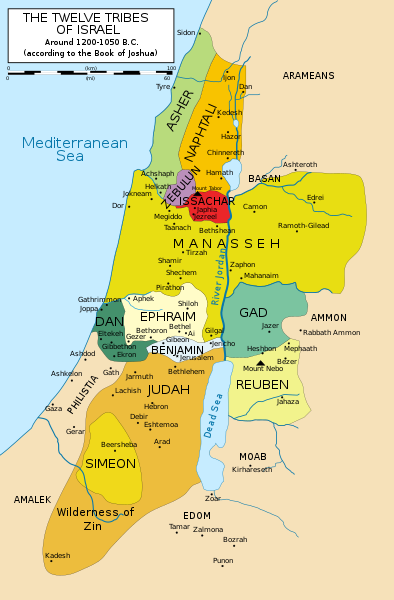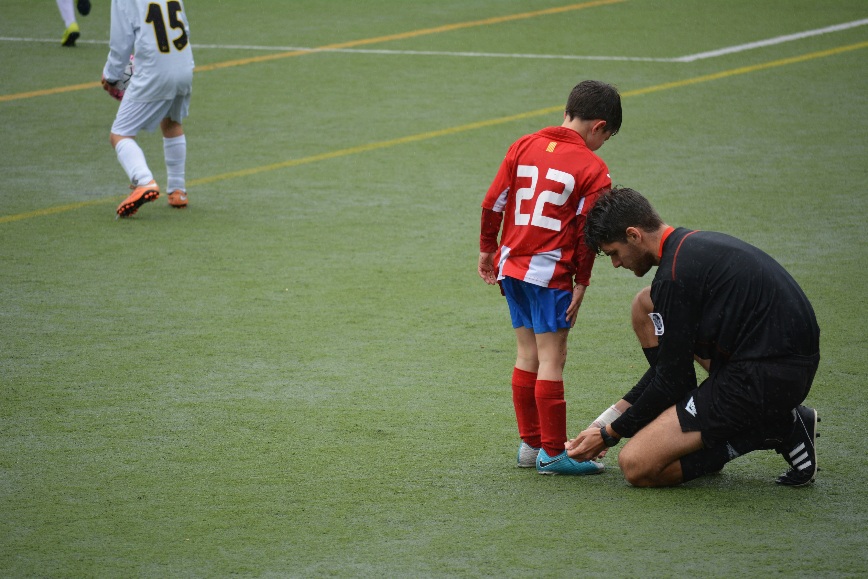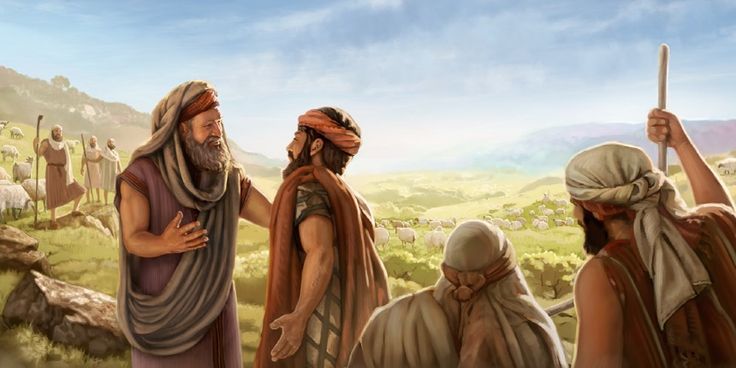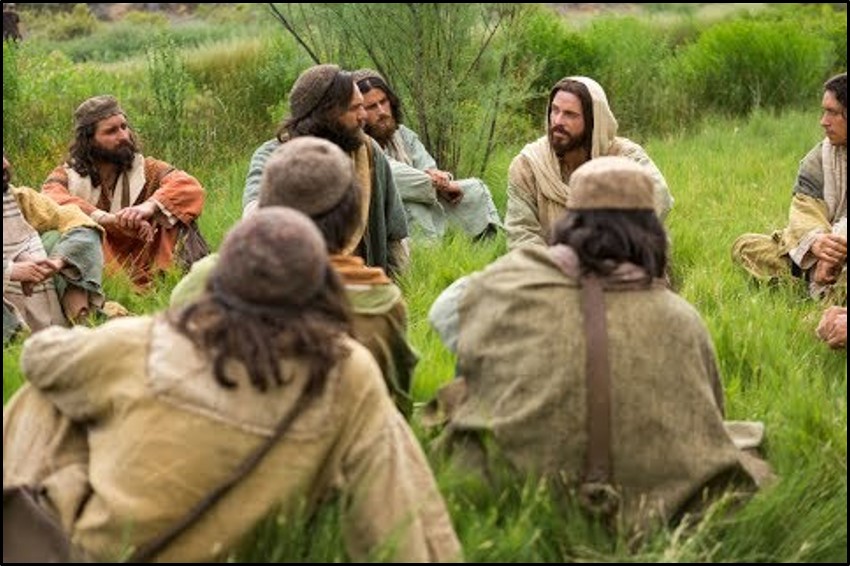
Being A Brother
In the book of Romans in the Bible, there is a simple but telling portion in its sixteenth chapter from verses 21 to 23: Timotheus my workfellow, and Lucius, and Jason, and Sosipater, my kinsmen, salute you. I Tertius, who wrote this epistle, salute you in the Lord. Gaius mine host, and of the whole church, salutes you. Erastus the chamberlain of the city salutes you, and Quartus a brother. It is significant that the Apostle Paul adds a qualifier to all the people mentioned here, except one, Quartus, whom he simply describes as being a brother.
Nothing else is said about Quartus as to who he was, or how was he saved, what gifts did he exercise, what is his background, where did he lead his life, or why he is mentioned here. Believer’s magazine writes: To these questions we will have no answers until we all meet in glory. What dignity, however, he is given. He may not have been an outstanding personality. He may not have been well known. He may still be one of the crowd. He may not even have been long on the Christian pathway, but he did wish to greet the saints in far off Rome, and with Paul he shares the great honor of being “a brother”. As brother, he cared enough to bother enough to send a greeting to others in Christ, even though he hasn’t even met them.
Being a brother, part of a community, part of the family of God is a privilege, an identity, a reckoning, and a commitment.
Blessing of Brotherhood
Psalm 133 is one of the smallest chapters in that book but with the deepest and most profound message in its 3 verses. It is part of the Psalms of Ascent, one of three psalms with three verses, with the other two being Psalms 131 and 134. The shortest psalm is Psalm 117, with two verses. According to 18th-century theologian John Gill, David may have composed this psalm after he was unanimously crowned as king by the united tribes of Israel, or after his son Absalom’s revolt was put down and the tribes hurried to show their loyalty to David.
Ray Fowler points out that living together in unity is good, it is pleasant, and it is appropriate for us as brothers and sisters in Christ. As believers we are united with Christ, and we are filled with the Holy Spirit. Christian unity is God’s gift to us – flowing down over us like precious oil on Aaron’s head or rich dew from Mount Hermon.
In the life of the nation of Israel, as they entered the promised land, there is an important interaction seen between two of its tribes, Judah and Simeon.

Business at Hand
When Israel entered Canaan land, each tribe’s allotted portion had been marked out and handed over to them by Joshua, their leader. After this, Joshua dies at a ripe old age, with much of land yet to taken possession of, leaving the task of capturing and occupying their allotted portion, and laying claim to their inheritance, to the tribes themselves.
In the book of Judges in the Bible, we read: After the death of Joshua, the Israelites asked the LORD, “Which of our tribes should attack the Canaanites first?” “Judah!” the LORD answered. “I’ll help them take the land.” The people of Judah went to their relatives, the Simeon tribe, and said, “Canaanites live in the land God gave us. Help us fight them, and we will help you.” Troops from Simeon came to help Judah. Together they attacked an army of ten thousand Canaanites and Perizzites at Bezek, and the LORD helped Judah defeat them. Here we see brotherhood exhibited and demonstrated in reality and in action.
As God had indicated that Judah should lead the first attack, Judah prepares to do so and requests the assistance of its neighbor and brother tribe, Simeon. It is worthwhile to explore and understand why Judah, one of the larger tribes and the strongest one of all, would request help from its smaller brother tribe.
Band of Brothers
Tracing the history of the nation, we see that Judah and Simeon were born to the same mother, Leah, the first and despised wife of Jacob. The patriarchal blessing of Jacob bestowed upon Judah was one of rulership of the whole nation of Israel, while that on Simeon and Levi, was a curse for their cruelty against the Shechemites. However, Levi redeemed itself from the curse by choosing to follow the Lord wholeheartedly at Sinai when the other tribes took part in idol worship. As a result, when Moses blessed the tribes before his passing, Levi gets the priesthood as a perpetual covenant.
The Tribe of Simeon, which was was a fairly small tribe known for its strength, does not get any mention in the Mosaic blessing. The tribe of Simeon did receive its share of land, but within the lot of Judah: The second lot came out for the tribe of Simeon according to its clans. Their inheritance lay within the territory of Judah. The inheritance of the Simeonites was taken from the share of Judah, because Judah’s portion was more than they needed. So the Simeonites received their inheritance within the territory of Judah. No other tribe had their lot within that of another except Simeon.
According to sources, the Tribe of Simeon depended upon Judah for the conquest of its portion of the land, and received as their portion a part of the territory already allotted to Judah (Joshua 19:1-9). It was located in the South-West of the land, with Judah on the East and Dan on the North; the tribe of Simeon settled in the southwest part of Israel between Judah and Philistia.

Brother or Boss
The attitude of the tribe of Judah towards its less fortunate, or let’s say, less blessed brother Simeon, astonishes me. To look upon one, who shared the same blood, with compassion and kindness, shows character and strength. Extending favor to a less fortunate kin or be considerate to them in their time of humiliation, though brought on by their own mistake, is a trait fast fading out in people today.
Judah did not also boss the smaller tribe or demand it to be its vassal since its portion was within its own realm. The way Judah treated Simeon, with dignity of brotherly kindness, is something that needs to be noted and practiced even desttroying. today. Judah didn’t order Simeon to help, but requested an exchange of help, showing how we ought to treat one another as brothers and sisters together in the family of God.
This world is about grasping, fighting, grabbing, hoarding, demanding, stealing, defrauding, and destroying. God’s chosen have to be the opposite – sharing, helping, giving, yielding, allowing, offering, and volunteering.
Judah rose to help its underprivileged brother, and did not use the occasion to bully or use its secure standing to abuse its less fortunate neighbour.
Brother or Beast
What distinguishes us from animals is precisely this: Beasts target and hunt down their prey in their weak moments or attack their weaknesses; human beings get elevated by their humanness towards one another or to a family of their own. If we move to take advantage of one another’s vulnerable moments or of frailties, we are feral and not people. We move from been human and humane to bestiality and animal-like by the way we treat one another.
It is significant that God created man from the dust of the ground on the same day and from the same material that He created animals. The only difference is that God fashioned man by Himself and also breathed His Spirit into him to make him a living being. That’s why animals are said to have and live by five senses, while man transcends with a distinct attribute of having a sixth sense.
Mankind or humankind was created with a unique ability to communicate and have relationship with God, besides being endowed with ability to exist in an earthly environment. Man and woman have the significant capacity to be children of your Father in heaven. He causes his sun to rise on the evil and the good, and sends rain on the righteous and the unrighteous (Matt 5:45).
Human race alone has the capacity to ascend to heights of divine nature or descend to the depths of depravity of brutishness. No other creation has this amplitude and aptitude, for flora and fauna can never transcend to be persons or people, whatever be the progress touted by scientific or technological advancements. By our choices, we can attain to true manhood and womanhood, being basic human beings.

Blithe and Bane of Brotherhood
The history between Abraham and Lot illustrates well who acted with brotherly kindness, and who rose to be the true nature of kinship. In Gen 13:1-11, when there was altercation between their servants, it was Abraham who took the right attitude, and solved the issue amicably. He tells Lot to move to another area, and gives him the first choice of the direction and the place he would choose.
It was to Abraham that God gave the promise of the land, and he took Lot along since Lot had lost his father, Abraham’s brother. Lot was blessed and grew rich by the outfall from Abraham’s riches and bounty from Egypt, because he tagged along with Abraham in the position of a son. Lot was the younger and, by right, should have given the right of way to Abraham. Yet, it was Abraham, the one who had the promise, the provision, the prosperity, and the position, who chose to step back to give his nephew Lot the first choice.
What an attitude that is Christlike and dignified honoring of relationship in an age and time when being elder means having the authority and right. Abraham rose to the heights of divinity and did not descend to the inherent depravity of human nature!
This then is the price of brotherhood and the cost of being a sibling, a relative, a parent, a companion, being partners and heirs together in the gracious gift of life. One needs to lay down one’s self in order to be a brother and a kin to those in the family of God. This is the cost of maintaining the unity and oneness in family, most importantly in the family of God, and the community of faith. This is the attitude is evidenced by the Apostle Paul who instructs his disciple and co-worker in Christ, Philemon, to extend mercy and acceptance to his runaway slave Onesimus.
Brotherly Kindness of Jesus
Scripture shows us that Jesus, is the firstborn in the family of God, and as such, is our elder brother, for He calls us His brothers and sisters. He shows us the way to be brotherly and exercise the family ties in an outstanding manner, even laying down His life for us to make us part of His family. He is not jealous of us, doesn’t work or scheme against us, took the lower place in order to elevate us, does not estrange us from the Father. Rather, He died on the cross to reconcile us to one another, and as one new community, reconciled to and with God.
He gave us and still gives us access to His and our Father, shares with us all the blessings and riches of grace He has received through His spotless life as a man, calls us by His name and allows the freedom to exercise authority in His name, and is making a place for us to be with Him in eternity.
We, therefore, have no excuse but to be like Him, brotherly and extending kindness, sharing in our good things and wealth, with others in the family of God. This is what was evidenced in the early church, which is why people from different blocks of life and from every sector of society chose to be part of His family. This in spite of the fact that being part of the church, His family, would bring on them persecution and prison, hardships and suffering.

Being Brotherly, How is it Today?
Too often today, with our rush to acquire and win the race of life, we consider being Brotherly, a burden and not a boon. With our individualistic outlooks and our frenzied attempts to live for ourselves, we consider being brotherly a bother, and not a blessing.
Being a brother (or a sister) is out of fashion even in our own families and households, that we don’t even consider the family of God. Kings, leaders, and others, have killed, exploited, rejected, and thrown out even family members for the sake of position, fame, name, possessions, etc.
Being a brother did not cause Abraham to lose, for God blessed him, nor Judah to diminish. Its a myth that we will forfeit when we care for others. In reality, there will be a tremendous positive gain for those who follow the example.of Christ!
In this competitive world, will we victimize others to our own gain, or will we help them gain even at our own cost? Will we follow the way of Christ and His Apostles, or will we choose the way of this world and of its minions?
Whom are we going to imitate when there is much validation in the scriptures, both the Old and New Testaments, what it means to be brotherly, in every sense of the Word? Do we rise above the trends of this world and care for the underdog as did Judah in thr days of old?
God give us grace to imitate Christ our prototype, and live in this selfish world as a rebuke to its patterns and persuasions!













